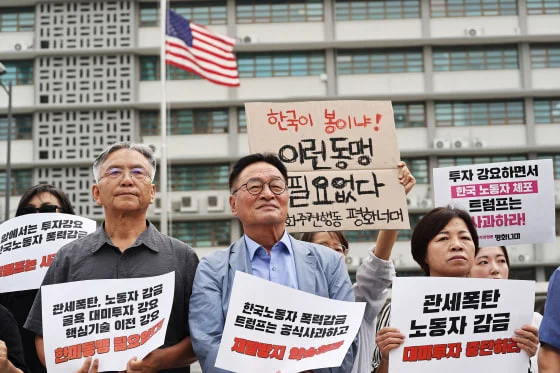About 300 South Korean workers detained during a recent U.S. immigration raid in Georgia are set to leave the United States on a chartered flight scheduled for Wednesday afternoon.
The raid targeted the $4.3 billion Hyundai Motor and LG Energy Solution battery plant project, a major investment in America’s electric vehicle industry.
Details of the Workers’ Departure
Raid and Detention
- The workers, mostly subcontractor employees, were taken into custody last week at the project site.
- They have been held in a U.S. immigration detention facility since the raid.
- A chartered plane departed from South Korea for Atlanta on Wednesday morning to repatriate them.
- Before boarding, the workers will be transported by bus to Atlanta’s airport.
- A smaller group of Japanese and Chinese nationals caught in the same raid will also be on the flight, according to South Korean media.
Government Response
South Korea’s Foreign Minister Cho Hyun assured the safe return of the workers after meeting Korean companies in Washington. He emphasized that there will be no restrictions on their future re-entry to the U.S.
The foreign ministry has not yet released an official statement on the workers’ departure.
Diplomatic Talks and Visa Concerns
U.S. Secretary of State Marco Rubio is expected to meet Foreign Minister Cho at the White House on Wednesday.
Korean firms, including Hyundai and LG, have pressed for clearer visa rules for skilled workers. They argue that strict U.S. visa limits slow down factory construction and local workforce training.
Trump’s Statement and White House Position
President Donald Trump said on Sunday that the U.S. would “quickly and legally” allow foreign companies to bring staff if immigration laws are followed.
White House spokesperson Karoline Leavitt echoed the statement on Tuesday, noting close coordination between the Department of Homeland Security and the Department of Commerce.
Why This Matters
The episode reflects broader tensions over U.S. immigration enforcement, even as Washington welcomes major foreign investments like the Hyundai-LG EV battery project.
South Korea’s swift response, coupled with high-level talks, could lead to visa policy adjustments, easing barriers for Korean companies and reinforcing economic ties between Seoul and Washington.






